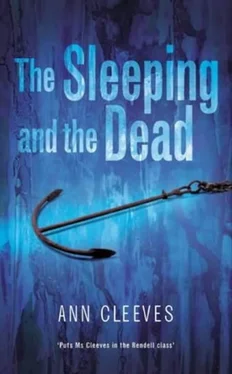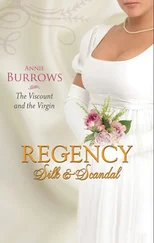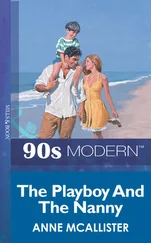At first Hannah thought that this disappointment had been reason enough for her father’s suicide. She supposed he felt responsible for her mother’s unhappiness; he had never been able to live up to her expectations. Then Hannah learned it was much worse than that. By the time of his death he’d progressed to the post of assistant manager, and he’d been stealing. Perhaps he hoped to buy his wife’s approval with little luxuries for the house, but Hannah thought it was more that he felt the bank owed him what he took. It was his way of fighting back. Of course, he wasn’t very good at covering his tracks and he knew he would be caught. He couldn’t face it. But Hannah and her mother had to face it. They had to face the questions from the bank and the police, the prying neighbours, the dreadful sympathy. And Hannah had to come to terms with the fact that her father hadn’t loved her enough to stay alive. He had put her through this embarrassment to save himself the ordeal of it.
Then it was September and time to go back to school. Hannah was dreading it. Her father’s face had been plastered all over the local paper. Even if the teachers were too sensitive to mention the suicide she’d be aware of their curiosity, and some of the kids, at least, would be merciless. Hannah wasn’t popular. She was known as a swat. Rock music was important then. Status was conferred by knowledge of obscure groups and Hannah couldn’t join in those discussions. There wasn’t even a record player in her house and anyway she wasn’t really interested. Over the holidays she’d avoided most of the people from school. She’d seen Sally a couple of times, but only in her home. She’d kept away from the pub and the parties.
On the first day of term Michael Grey turned up. There weren’t many new kids at the school and he was immediately the centre of attention. For Hannah his appearance was a relief. It took the heat off her. While the rest of them were gathered around him at registration she slid into the room, dumped her stuff in her locker and slipped away to her first class. There was such a crowd around him that she didn’t even see his face. At the mid-morning break she wanted to hide again, but Sally dragged her to the common-room.
‘Look,’ Sally said. ‘You’ll have to face them sometime. Better now when they’ve got the beautiful Michael to distract them.’
He always was Michael. Never Mike or Mick.
The sixth-form common-room was a mobile classroom. It was square, flat roofed, freezing in the winter, but that September was hot, an Indian summer. Sixth formers didn’t have to wear uniform and they’d all chosen their clothes on that first day with care. It was a season of peasant fashion. The boys wore wide trousers and cheesecloth shirts. The girls, even Hannah, were in smocks and long flowery skirts. Michael stood with his back to the window so the light was behind him. That could have been deliberate. He had what Mr Westcott called a theatrical eye. He wore a pair of denim jeans which looked new, a black T-shirt, and desert boots with black leather laces. His hair was blond, almost white. He had a suntan. Foreign travel was unusual those days and it was hard to get a tan in her northern town, so that made him stand out too. There was something about him that made the others listen. It wasn’t just the novelty.
Sally nudged Hannah in the ribs. ‘What do you think?’
‘I think he’s cocky,’ Hannah said. ‘He’s good looking but he knows it.’
He can’t have heard what she said. There was music playing and everyone talked at once. But he looked over the heads of the others towards her as if he knew what she was thinking. He gave a self-deprecating little shrug. I know, he seemed to be saying. This is all bullshit. But it’s a game and I’ve got to go along with it.
Later Hannah saw her first meeting with Michael as a turning point. After that she was seen differently within the school. She could face them all without embarrassment. It was possible that her memory played tricks – that there were unpleasant comments about her father, days when she wanted to stay at home. It was possible that her re-creation of her friendship with Michael was as great a fiction as the story he told about himself. But his arrival did make a difference. Some incidents remained clear and vivid. These, she was convinced, were true.
There was the day he first invited her to the Brices, for example. Hannah remembered that as soon as she started talking to the detectives. Michael was placed in the same English group as her, and on the day of his arrival he chose the seat next to her, at one of the old-fashioned desks with the lift-up lids that you never see now. Despite her disdain, her sense that he was too cocky by half, there was a rush of excitement when she turned and saw him there. Through habit they kept the same seats all term. They were reading Middle-march . The rest of the group hated it. They found it tedious and Hannah suspected that most of them didn’t make it to the end. She loved it and so did Michael. There’d been this guy in the old place who’d been passionate about it, he said. Who’d done it as part of his Ph.D. and passed on his enthusiasm. Hannah presumed then that the ‘guy’ was a teacher, the ‘old place’ a school. Later she was to presume nothing. Michael said he had some notes at home. Perhaps she’d like to borrow them to help with an essay they’d been set? If she wasn’t in a hurry she could go back with him, have a cup of tea. The old folks would be thrilled to bits.
Recreating the scene in her head, Hannah thought it had been the beginning of December. She could remember the cold. He must have been in the town for three months but still she had no idea that his family was different from anyone else’s. They hadn’t talked about it. She hadn’t told him about the drama with her father, though it was possible that the others had been whispering behind her back. At that age families weren’t as important as friends.
‘Old folks?’ she said. It seemed an odd way to talk about parents.
‘Sylvie and Steve. You’ll see.’
‘You call your mum and dad by their first names?’
‘No. They’re not my parents. My mother’s dead. My father…’ He seemed thrown for a moment. ‘Well, I don’t get to see much of him.’
They walked slowly up the school drive to the house. It was almost dark by the time they arrived at the house, one of a small row, flat faced. As the light went the temperature plummeted. They stood for a moment on the pavement, looking in. There was a street lamp and they could see their breath as a white mist. The lights were on inside but the curtains had not been drawn. There was a fire in the grate and an elderly man sat on a leather armchair, with a cat on his knee, reading.
‘That’s Steve,’ Michael said with enormous affection. He took out a Yale key and let himself in.
Inside there was a smell of fruit and spice. A small kitchen led straight from the hall and she’d seen Sylvie, red faced, turning a cake on to a wire tray. She looked slightly flustered. Her hair had come loose from her comb. Michael put his arm around her.
‘This is Hannah,’ he said. ‘She’s a George Eliot fan too. I’ve brought her home for tea. You don’t mind?’
‘Of course we don’t mind.’ She smiled at Hannah. ‘We haven’t met any of his friends before. I think he’s ashamed of us.’
‘How could I be?’ he said.
Hannah didn’t know what to make of the relationship between Michael and the Brices. Usually she was jealous of other people’s home lives. Her own was so bleak. Her mother struggled on to keep the house as she wanted it. They hadn’t been forced to sell, though at one time that had been a possibility. There was even less money than there had been before and Audrey hated the forced economies. She pretended not to mind the gossip and in fact seldom went out to hear it. Television had become her consolation. Hannah was grateful because it provided a safe topic of conversation. Without it they would have had little to say to each other. Later she thought that her mother had been depressed and had been brave to keep things as normal as she did. Then she longed to be a part of a different sort of family. That’s why she spent so much time with Sally. Her dream family would have been quite like Sally’s, but the parents would have been younger, interested perhaps in different things. There would be a brother as well as a sister and they would have shared meals together discussing ideas about books and plays. There would have been noise and laughter. At the time she didn’t consider Michael’s situation as ideal. It was too different from her dream. Everything was so quiet. There was discussion but it was calm and measured.
Читать дальше












